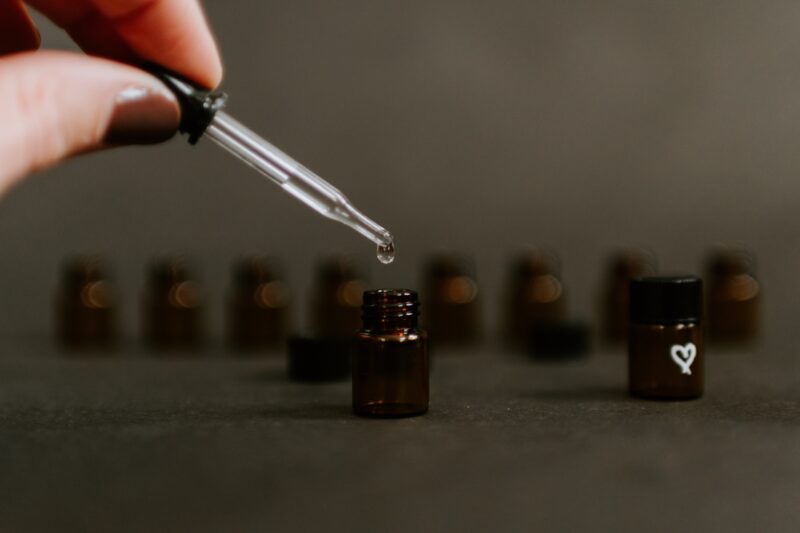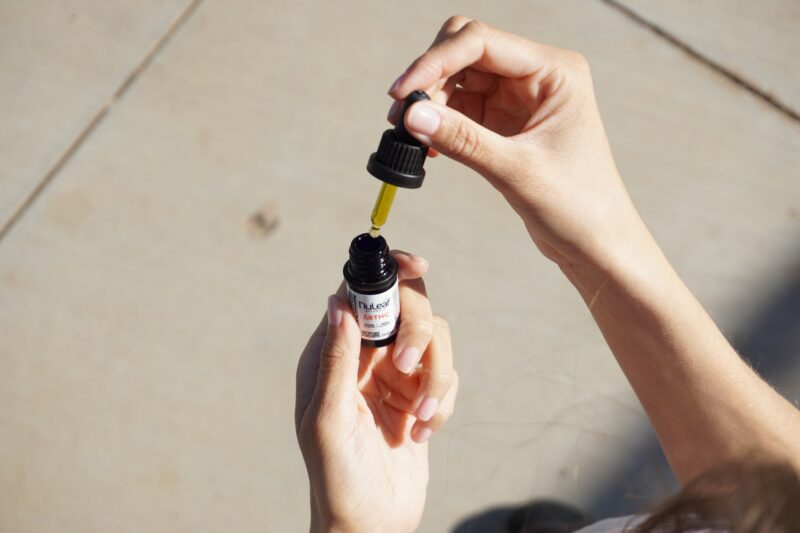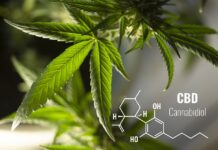CBD oil is a newer product that has been growing in popularity, especially among parents looking for natural ways to help their children. It’s a natural oil extracted from the hemp plant. Unlike THC, another compound found in hemp, CBD does not have any psychoactive effects and is, therefore, non-intoxicating, which means it won’t make you or your child high if appropriately used.
CBD oil has been shown to have various potential health benefits, including reducing anxiety, relieving pain, and improving sleep. These benefits can be beneficial for children in managing conditions like autism, ADHD, and epilepsy.
Here we look at the research on CBD oil usage for children and provide tips on how to use it safely.
Is CBD oil safe for children?

Currently, there is a lack of long-term studies on the safety of CBD oil in children. However, most of the available research shows that it is generally well-tolerated and has few side effects.
In a study of 59 children with epilepsy, researchers found that CBD was associated with an overall reduction in seizure frequency. Side effects were reported by less than 10% of participants and were primarily mild, such as drowsiness or diarrhoea.
Another study looked at the safety and tolerability of CBD oil in children and adolescents with autism spectrum disorder (ASD). The study found that CBD was well-tolerated and had no severe side effects. The common side effects were sleepiness, decreased appetite, and diarrhoea.
It’s important to note that the FDA does not regulate CBD oil, so choosing a reputable brand is vital. Look for third-party testing brands to ensure their products are of high quality.
How much CBD oil should I give my child?
The CBD dosage in capsules will differ based on your child’s age, weight, and condition. It’s best to start with a smaller dose and gradually increase as needed. It’s important to read the correct CBD dosage guide before administering it.
*You can find detailed information on dosages to administer at Mojave.
For instance, one study looked at the use of CBD oil in children with epilepsy. The starting dose was 2.5 mg/kg per day and increased by 2.5 mg/kg weekly until the desired effect was achieved (3).
Another study examined the use of CBD oil in children and adolescents with ASD. The starting dose was 5-10 mg/kg per day and increased weekly by 5-10 mg/kg until the desired side effects became bothersome (4).
If you’re unsure what dose to give your child, it’s best to start low and gradually increase as needed. You can also speak with a doctor familiar with CBD oil to get their opinion on an appropriate dosage for your child.
Are there risks to using CBD oil?

CBD oil is generally considered safe, but there are a few potential risks to be aware of.
First, as the FDA does not regulate CBD oil, there is no guarantee of its quality or purity. It means choosing a reputable brand that uses third-party testing to ensure its high-quality products are essential.
Second, CBD oil might cause problems when it comes to other medicines your child is taking. If your youngster is taking any other medicines, you must consult a doctor before giving them CBD oil.
Finally, CBD oil may sometimes cause allergies in individuals allergic to it. If you detect any indication of an allergic reaction (such as a rash, hives, or difficulty breathing), stop using the oil and see your doctor right away.
Benefits of CBD oil for children?
CBD oil has been shown to have various potential health benefits, including reducing anxiety, relieving pain, and improving sleep. These benefits can be beneficial for children in managing conditions like autism, ADHD, and epilepsy.
A recent study published in the journal Frontiers in Neurology found that CBD oil may help reduce seizure frequency in children with epilepsy. The authors note that CBD oil is a safe, effective treatment option for kids with epilepsy and suggest that it be considered part of a comprehensive treatment plan.
Another study published in the journal Pediatrics found that CBD oil effectively reduced anxiety symptoms in children with autism spectrum disorder (ASD). The study’s authors say that CBD oil could be a promising treatment option for ASD, as it is generally well-tolerated and has few side effects.
Cannabidiol (CBD) has also been studied for its ability to help children with ADHD. According to little research published in the journal Neuropsychopharmacology, CBD oil improved hyperactivity and impulsivity symptoms in children with ADHD. The authors state that further studies are required to verify these findings.
As more research is conducted on CBD oil, we will continue to learn more about its potential benefits for children. In the meantime, if you’re considering giving your child CBD oil, speak with a doctor first to ensure it’s safe and appropriate for them.
Where to find CBD oil?

You can purchase CBD oil from a variety of online and brick-and-mortar retailers. However, it’s vital to keep in mind that not all CBD products are the same. When purchasing CBD oil, be sure to look for third-party tested products to ensure they are of high quality and free of contaminants.
You should also search for goods that contain no more than 0.3 percent THC, as this is the legal limit in the United States. Anything more significant may be considered unlawful and result in fines or imprisonment. When you buy CBD oil online, double-check the company’s return policy to ensure that you can return it if need be.
Let’s wrap it up
CBD oil has been found to have many benefits for both children and adults. While more research is needed, the current evidence suggests that CBD oil is safe and effective for treating a variety of conditions in both children and adults. If you are considering using CBD oil for your child, speak with your pediatrician to get their advice on the best dosage and form of CBD oil to use.












